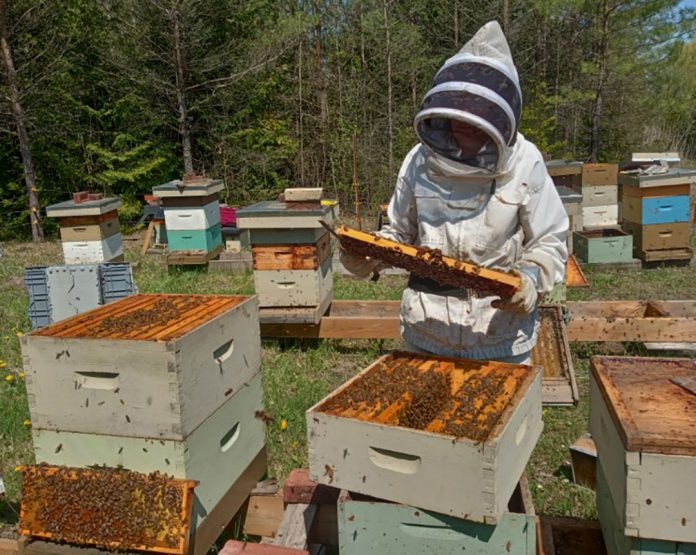JoAnn Poirier, a local beekeeper is committed to a lifelong journey of learning.
She is the owner of Kiss My Bees Honey, which recently won first prize for the best Golden Honey at the Royal Agricultural Winter Fair in Toronto. JoAnn and her husband Chuck have run their business from their Hampton, Ont., home since 2009.
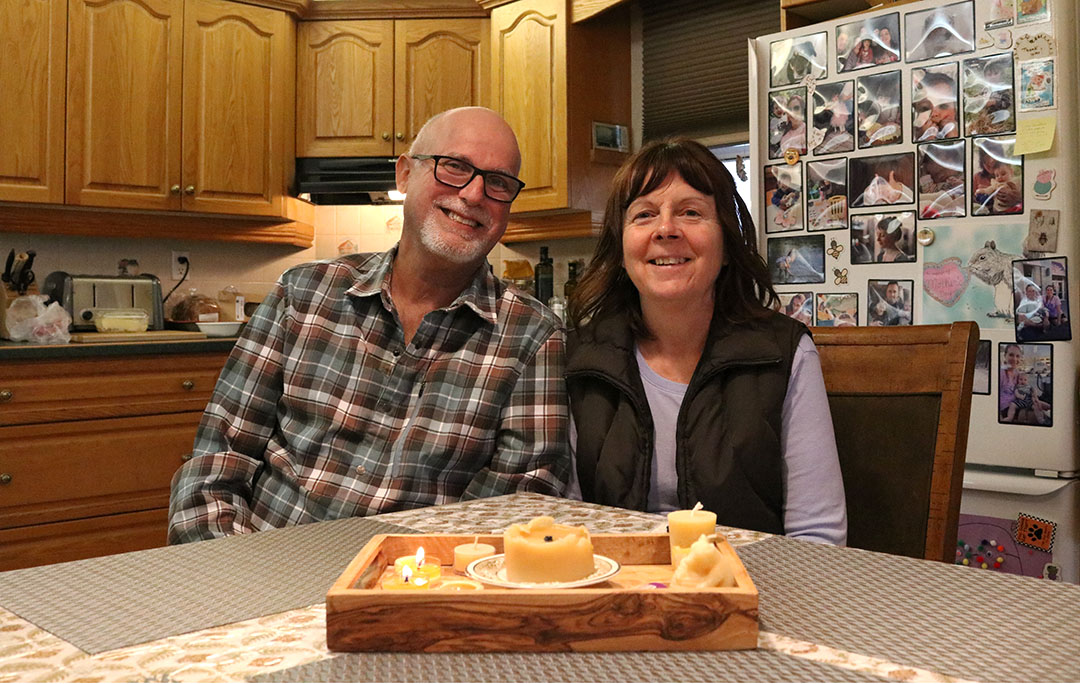
Their beekeeping venture began in 2006 after discovering an apple orchard on their new property. Growing up in Whitby, JoAnn was accustomed to bees in orchards, so their absence at their new home sparked her interest in beekeeping.
“And I said to my husband, ‘I think we have to get a couple hives,’” JoAnn said. “I didn’t know the first thing about keeping bees; I had no idea.”
With no prior knowledge, she took a weekend beekeeping course and acquired her first two hives. Now, the couple has around 100 hives across the Durham Region; from Orono to Whitby. They are only keeping roughly 10-20 hives on their property.
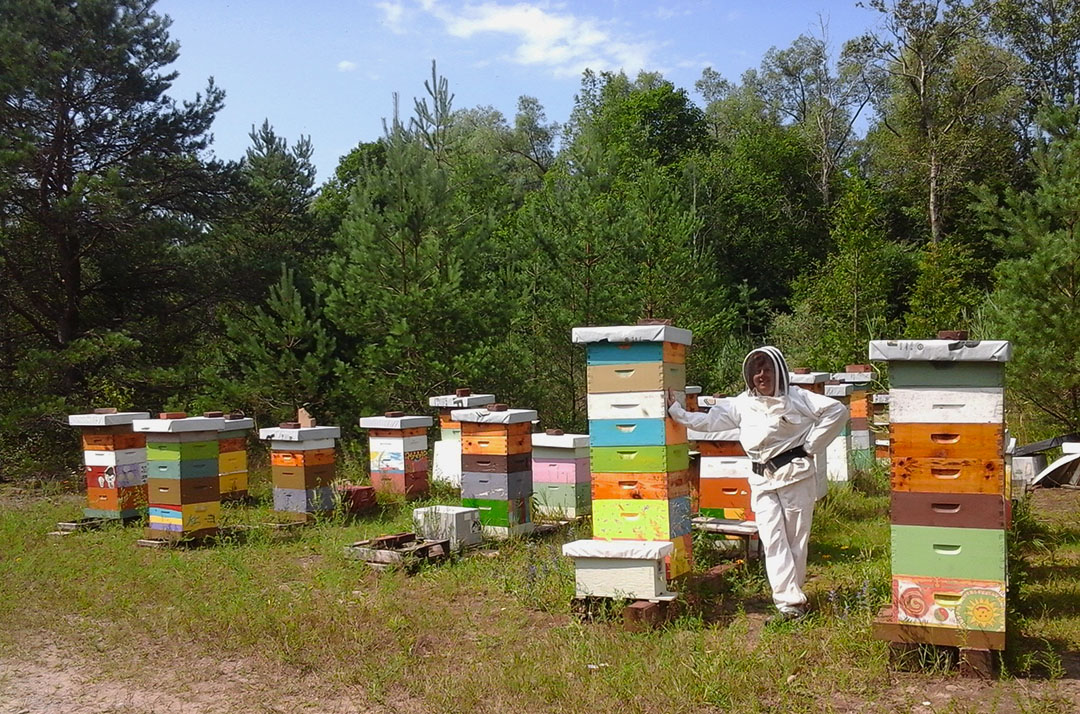
When she started out, JoAnn read a lot, watched videos, and attended local monthly beekeeping association meeting, and learned from other beekeepers.
“I learn a lot from listening,” she says. “But I also learned a lot from observing and just garnering the individual expertise that you would get inside a hive, because every hive is different.”
As local bee farmers, JoAnn and Chuck take on many roles, ranging from taking care of the bees, promoting and managing their markets, media management, and handling the marketing for their business.
“I would say it’s such a multifaceted career that it’s not just one skill that you’re relying on, [you have to be a] jack of all trades, master of none,” says JoAnn.
One of the biggest challenges for beekeepers is keeping the bees alive. Varroa Mites are the Poirier’s biggest concern. These mites aren’t just a problem in Ontario but across Canada, and the world.
“There are very few areas in the world now that Varroa Mites aren’t seen as a pest for honeybees,” says JoAnn.
In the Winter of 2021, JoAnn and Chuck lost a significant number of bees due to Varroa Mites. According to the Canadian Association of Professional Apiculturists (CAPA), the national winter loss for 2021-2022 was 45.5 per cent, with provincial losses ranging from 15.3 to 57.2 per cent.
“All beekeepers across Ontario sustained a minimal 50 per cent loss of bees,” says JoAnn.
This setback prompted them to withdraw their hives from Durham College Whitby campus, where they had been promoting sustainable agriculture and the farm-to-fork philosophy.
To manage Varroa Mites, the Poiriers employ naturalized organic treatments, drone management, and regular monitoring.
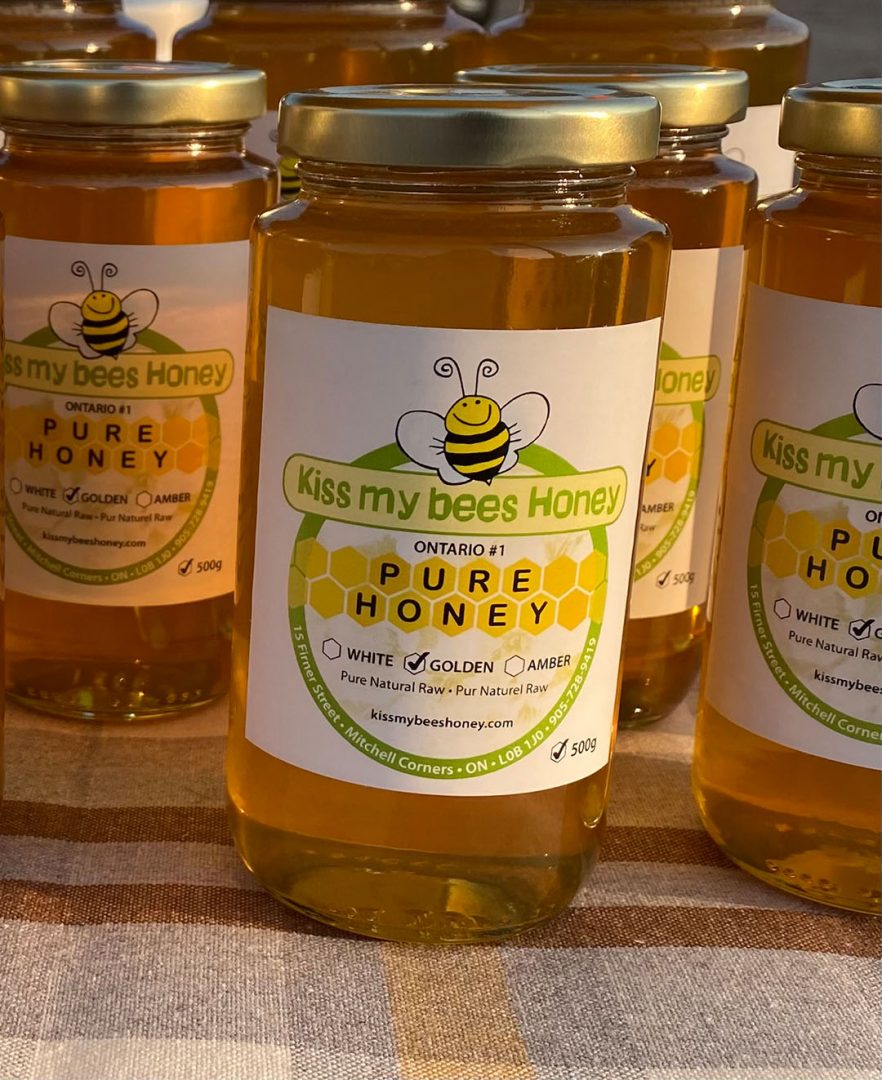

“The reason mites are such a concern is if you think of a honeybee, they have an exoskeleton,” says JoAnn, “the mites attach to that exoskeleton and they puncture it and penetrate the lymphatic system of honeybees, so that’s the immune system for honeybees.”
According to ontario.ca, when the immune system of a honeybee is attacked, it leaves it more vulnerable to be susceptible to diseases.
“So, for us without mite management, I would say 90 per cent of our hives wouldn’t survive long term, so we have to be very diligent about that,” says JoAnn.
Winter also presents a challenge for the bee’s health. “Unfortunately, year to year, we see fluctuations and the [number] of bees that don’t make it through the winter,” she says.
JoAnn and Chuck say they practice responsible beekeeping by prioritizing what the bees need to survive during these times. “We don’t take all of their honey because they need about 100 pounds of honey to survive the winter,” says JoAnn.
They typically wait until the temperature consistently drops below five degrees before wrapping the beehives for winter. Before wrapping, JoAnn assesses the nectar accumulation and applies another mite treatment, ensuring the bees’ health throughout the colder months.
JoAnn credits her growth as a beekeeper to the local beekeeping community and her mentor, Reg Hicks, a beekeeper until age 94.
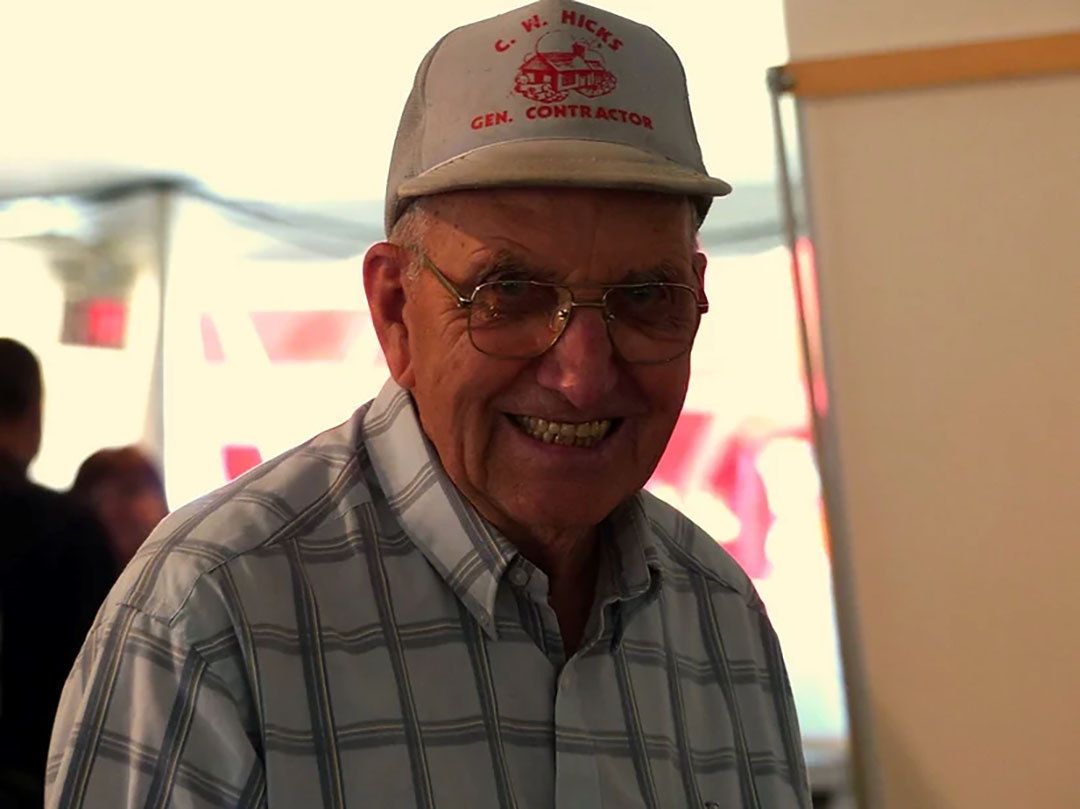
“The friendships we make through fellow beekeepers, that’s probably one of the most special things,” says Chuck. “Our mentor is almost a father figure, you know, not [only] teaching us bees but teaching us about life.”
For JoAnn, beekeeping has become a legacy, whether it’s speaking to children at schools about bees and beekeeping, or sharing her knowledge with other beekeepers, she is inspired by educating others.
“I’m happy to share with other people the joy that beekeeping brings to my family.”
To support or follow along their journey, visit kissmybeeshoney.com.




